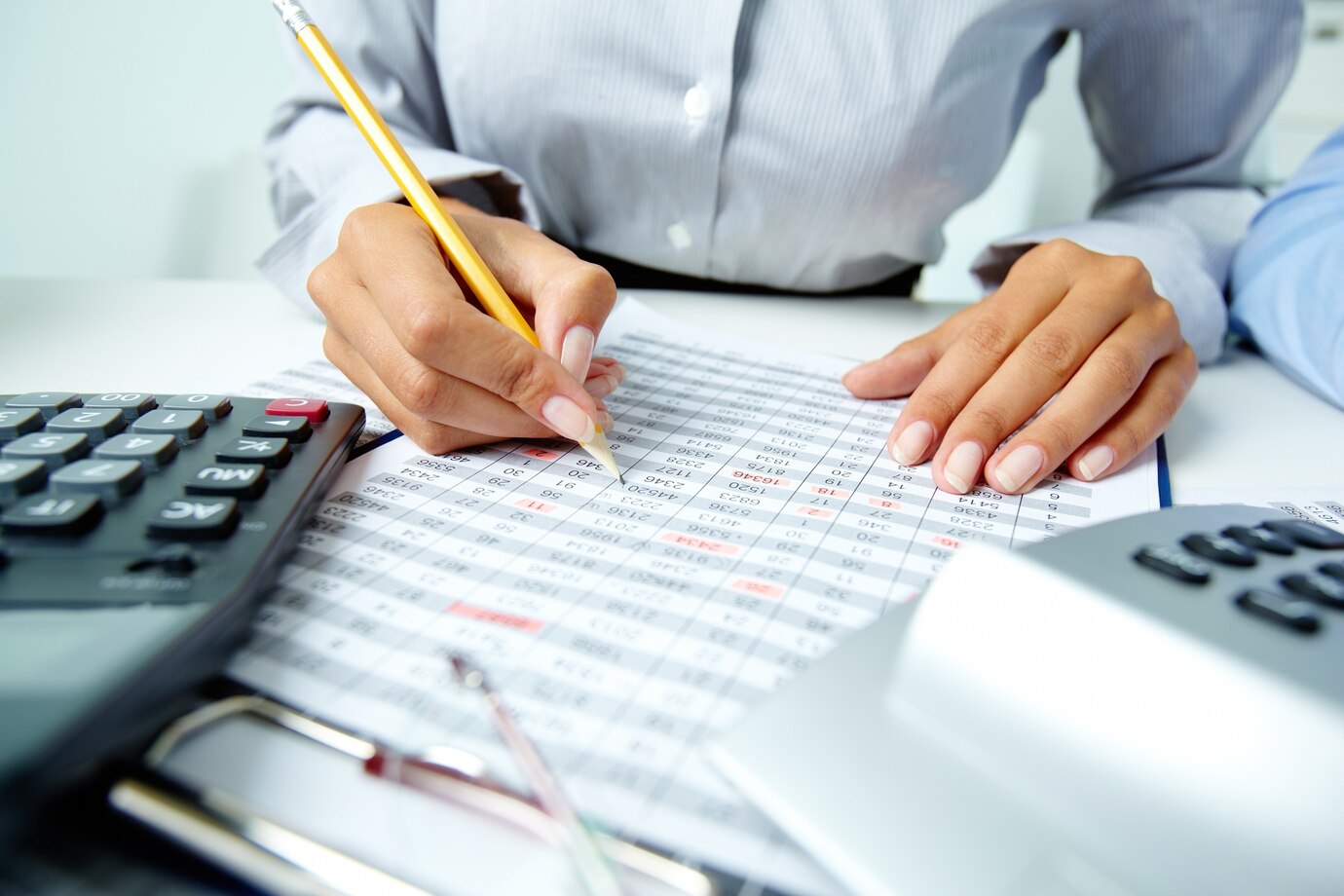The Business Blog

How to Handle Taxes as a Freelancer: A Complete Guide
Managing taxes as a freelancer can feel tough. You juggle client work and business expenses alone, which adds to the stress. Unlike traditional employees, freelancers are responsible for calculating, filing, and paying taxes. Failing to handle taxes properly can lead to penalties, cash flow issues, and financial stress.
Understanding your tax obligations and planning will save you time, money, and frustration. In this guide, we’ll share important freelancer tax tips. We’ll explain how to pay your freelance taxes right. Also, we’ll point out key tax deductions to help you lower your tax bill and stay compliant.
1. Understanding Your Tax Obligations as a Freelancer

Why Freelancers Are Taxed Differently
As a freelancer, you’re considered self-employed, which means you’re responsible for:
- Income tax: Based on your total earnings after expenses.
- Self-employment tax: Covers National Insurance contributions.
- VAT (if applicable): You must register for and pay VAT if your turnover exceeds the VAT threshold.
Key Tax Deadlines for Freelancers
- Self-assessment tax return: Due by 31 January for the previous tax year (UK).
- Quarterly tax payments are usually due in January and July if required.
- VAT returns: If registered for VAT, returns are due every 3 months.
Penalties for Late or Incorrect Tax Filing
- Late filing penalty: £100 if late by 1 day, increasing after 3 months.
- Incorrect filing penalty: Fines vary depending on the nature of the error.
- Late payment interest: Charged on overdue tax balances.
2. How to Register as a Freelancer for Taxes
Before you can start paying taxes as a freelancer, you need to register with HMRC (in the UK).
Steps to Register for Self-Assessment:
- Go to the HMRC website and create an account.
- Complete the registration for self-assessment as a sole trader or limited company.
- Receive your Unique Taxpayer Reference (UTR) number by post.
- Use your UTR number to file tax returns and make payments.
3. How to Calculate and Pay Freelance Taxes
1. Track Your Income and Expenses
Keep detailed records of all freelance earnings and expenses.
- Create a spreadsheet or use accounting software (e.g., QuickBooks, FreshBooks).
- Record invoice dates, amounts, and payment status.
- Save receipts and bank statements as proof of expenses.
2. Set Aside Taxes With Every Payment
To avoid a large tax bill at the end of the year, set aside a percentage of each payment.
- 20%–30% of each payment should go into a tax savings account.
- Keep tax funds separate from business and personal accounts.
3. Estimate and Pay Quarterly Taxes
Freelancers are usually required to make payments on account based on estimated income.
- First payment: 31 January
- Second payment: 31 July
- Adjust payments if your income significantly increases or decreases.
4. Pay Online or by Direct Debit
- Use the HMRC website or app to make payments.
- Set up a direct debit to avoid missed payments.
- Keep a record of all payments for future reference.
4. Best Tax Deductions for Freelancers

Tax deductions help reduce your taxable income, lowering your overall tax bill.
1. Home Office Expenses
If you work from home, you can claim some of your rent, mortgage, utilities, and internet.
- Calculate the percentage of your home used for work.
- Example: If your home office is 10% of your living space, you can deduct 10% of household bills.
2. Equipment and Supplies
Freelancers can deduct the cost of equipment and materials used for business purposes:
- Computer, phone, and printer costs
- Office furniture
- Stationery and software subscriptions
3. Travel and Transportation
If you travel for client meetings or projects, you can claim:
- Mileage (approved rates apply)
- Public transport and taxi fares
- Hotel and meal costs for business trips
4. Professional Fees and Subscriptions
You can deduct fees for:
- Professional memberships
- Industry publications
- Business-related courses and training
5. Marketing and Website Costs
Promoting your freelance business is a tax-deductible expense:
- Website hosting and maintenance fees
- Social media advertising
- Business cards and promotional materials
6. Insurance and Legal Fees
Protecting your freelance business is essential and deductible:
- Professional indemnity and public liability insurance
- Legal consultation fees
- Contract drafting and review costs
5. How to Track and Manage Freelance Taxes
Best Tools for Tracking Taxes
Using the right software makes tracking income, expenses, and tax obligations easier.
- QuickBooks – Automatically tracks income and expenses, calculates taxes, and generates reports.
- FreshBooks – Ideal for invoicing, expense tracking, and tax management.
- FreeAgent – Tracks self-assessment tax estimates and VAT returns.
Create a Tax Spreadsheet
If you prefer manual tracking, create a spreadsheet with these categories:
- Date of payment
- Client name
- Income Amount
- Expense type
- Expense amount
- Tax amount (set aside)
6. How to Minimise Your Tax Bill
1. Claim All Allowable Deductions
Make sure you claim every business-related expense.
- Keep all receipts and invoices.
- Record expenses immediately to avoid missing them at tax time.
2. Use a Tax Professional
Hiring an accountant or tax advisor can save you time and money:
- They can identify tax-saving opportunities.
- They ensure accurate filing and compliance.
- They can help you structure your business for better tax efficiency.
3. Invest in a Pension Scheme
Contributions to a private pension scheme reduce your taxable income.
- Pension contributions receive tax relief.
- Consider setting up a self-invested personal pension (SIPP).
4. Switch to a Limited Company
If your freelance income exceeds £50,000 annually, it may be beneficial to register as a limited company.
- Corporation tax rates are often lower than self-employment tax rates.
- Allows you to pay yourself through dividends, which are taxed at a lower rate.
7. Common Tax Mistakes to Avoid
Avoiding these common mistakes will help you stay compliant and minimise stress:
- Mixing business and personal expenses: Use separate accounts.
- Failing to set aside tax funds: Leads to cash flow problems at tax time.
- Missing tax deadlines: Results in penalties and interest charges.
- Undervaluing deductions: Claim all allowable business expenses.
- Incorrect tax classification: Ensure you’re registered correctly with HMRC.
8. FAQs About Freelance Taxes
- Q: How much should I set aside for taxes as a freelancer?
A: Set aside 20%–30% of each payment to cover income and self-employment tax. - Q: Do I need to register for VAT as a freelancer?
A: Only if your annual turnover exceeds the £85,000 VAT threshold. - Q: Can I deduct personal expenses used for business?
A: Yes, but only the portion directly related to business use. For example, if you use your phone 50% for work, you can deduct 50% of your phone bill.
Stay Tax-Savvy: Navigate Freelance Taxes with Confidence!

Handling freelance taxes doesn’t have to be stressful. Know your tax obligations, track your income and expenses, and claim all allowable deductions. This way, you can lower your tax bill and avoid costly errors.
Start by setting aside a percentage of each payment for taxes and using accounting software to keep records. For expert advice, see a tax professional. They can help you stay compliant and maximise your deductions.
Need more tips on managing freelance finances? Check out for more!









